Business
NCC set to improve quality of service
Published
10 years agoon
By
Olu Emmanuel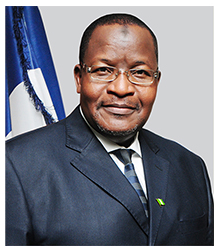
GLOBAL statistics has shown that there are over 10 billion electronic devices connected to the internet this figure is projected to grow to over 16 billion in 2020. This presents a monumental challenge to all nations.
Statistics from Nigeria Communication Commission, NCC has shown that the use of mobile phones grew phenomenally with over 94 per cent of the population and a net 167 million connections. Telecommunication holds the potential for increased network loading due to the projected implementation of e-government in Nigeria and the emergence of Internet of Things (IoT) on the horizon as well as the anticipated emergence of integration of all wireless mobile communication ecosystems. While there is no doubt that telecommunication is playing an increasingly critical role in the development of Nigeria, there are currently incessant complaints from customers on poor Quality of Service (QoS).
Nigeria is currently using 1G, 2G, 3G and 4G mobile communication technologies. The situation of poor QoS is likely to become even more challenging by 2020 when 5G mobile communication technologies are expected to appear in the market aimed at providing significantly improved customers’ QoS through the growth of data volume in mobile networks, as well as increased growth of wireless devices and variety of services.
There is no doubt that priority must be given to improving the current poor QoS in terms of strategic investment in infrastructure to support current and future needs in terms of increased number of users, increase traffic volumes in e-commerce, cashless transactions as we transitioned into a cashless society.
It is therefore expected that mobile communication networks built on the basis of 5G technologies and now empowered by Internet Protocol version 6 (IPv6) will provide data transfer speed of more than 10 Gb/s, backed by the projected volume of Mobile to Mobile (M2M) connections growing at a rate of 45 per cent up to 2.1 billion connections. M2M services are expected to dominate over basic services (voice and data) in 4G and 5G networks. Nigeria needs to put in place appropriate Internet regulations to cope with current low QoSand coming challenges.
Customer complaints and current challenges to QoS
While telecommunication service users in Nigeria continue to complain about poor QoS, the service providers on the other hand also point to some challenges which prevent them from providing high QoS. Some of the common complaints from service users in Nigeria include; Poor sound quality/network leading to financial, losses in air time, and the necessity to carry more than one handset at a time for back up. On the side of telecommunication service providers, some of the challenges being cited as factors affecting service efficiency include; Instability in power supply, lack of security of critical National Information Infrastructure (NII), call setup failure, call retention / call drop and congestion.
The closure of several Base Transceiver Stations (BTS) resulting from issues relating to multiple taxation and vandalism has cost telecom operators in the Global System for Mobile (GSM) such as MTN, Airtel, Glo and Etisalat about N20bn annually. Vandalisation and closure of cell sites pose a major challenge to network expansion by telecom operators, who have to comply with the directives of the Nigerian Communications Commission (NCC) on massive investment to further advance the sector. This has brought the need for operators to collocate and share infrastructure for improved network quality, especially in the remotest parts of the country. Consequently, rural coverage continues to suffer as closure of telecom cell sites greatly affects quality of service delivery to remote parts of the country by reducing the pace of infrastructure rollout to those areas. These factors negatively impact on QoS with the result that Nigerian customers continue to pay premium bills for poor services.
Telecommunication industry best practice requires that telecommunication service be defined by different QoS requirements in terms of appropriate IPv6 compliant equipment-type, packet delay tolerance, acceptable packet loss rates and required minimum bit rates. The NCC practice of sanctioning telecommunications operators for poor QoS, while becoming almost a yearly ritual in Nigeria’s telecommunications industry, may not lead to the desired result of improved QoS, but on the contrary may even prove counterproductive.
In December 2013 for example, NCC sanctioned the four major telecommunications operators in Nigeria with a total fine of $7.5 million (N1.17 billion) on the basis of poor QoS. ISPs argue that such sanctions rather than leading to improved QoS, have imposed some hindrances to the expansion of the networks that would eventually lead to enhanced QoS. QoS constraints are unmistakably obvious.
On one hand, subscribers will continue to expect mobile devices to provide high-quality connectivity and performance at all time since any interruption in data or voice services can be costly and at times fatal. On the other hand, mobile broadband networks carry multiple services that share radio access and core network resources and since operators do not have unlimited technical resources and capital and radio spectrum is finite (even if operators increase capacity, bandwidth-hungry applications such as Peer to Peer (P2P) services) video streaming will eventually consume excess capacity. Mobile broadband networks must support multiple applications of voice, video and data on a single IP-based infrastructure.
What needs to be done?
A simplistic approach is to provide services based traffic differentiation based on priority level where for example voice is given a higher priority over data, with preference also being given to customers who pay more to get better services without affecting the remaining customers who pay normal amount. This will require elaborate and effective QoS schemes. Expansion in customer base without a corresponding growth in the network infrastructure is by far the most dominant factor leading to poor QoS in Nigeria. This mismatch must be strategically addressed taking both short and long term consideration. While there is a valid argument that exponential growth in the Nigerian telecommunication sector has resulted in huge revenue growth to both the operators and government through tax and license fees, there is a chronic lack of investment to upgrade and modernize the existing infrastructure to match the demand. To address this, strategic investment in infrastructure must be made to support current and future needs in terms of increased number of users, increase traffic volumes in e-commerce, cashless transactions as we transitioned into a cashless society.
However, within a very short span of time, network’s evolution from Circuit Switched (CS) to Packet Switched (PS) technologies has led to phenomenal growth in telecommunication services with a huge increase in transmission capabilities, e.g., medium, bandwidth, throughput. This helped new services to emerge, including Voice over IP (VoIP) telephony and multimedia streaming. Currently, users require only an Internet Protocol (IP) access connection, either via a Wireless Local Area Network (WLAN) hotspot or a cellular connection. In 1G network and 2G networks such as GSM and CDMA, there was only one component of QoS which is a voice and providing quality speech was the major concern. Now in 3G networks QoS consists of both voice and data with priority given to voice services as they are considered the primary service and they are very delay sensitive and require real time service. Data services on the other hand are comprised of text and multimedia and are less delay sensitive experiencing less or no loss rate.
The regular control of service quality is critical for operators to ensure user Quality of Experience (QoE), establish new business models, establishment of new Call Centres at the globally acceptable standard of 200,000 customers per Call Centre and monetize services. It also enables operators to employ fair use resource policies and maintain network performance during peak traffic times as wireless mobile communication tends towards an integrated system of Internet and telecommunication technologies, where mobile users move freely anytime and everywhere, communicating with any device using the best service available.
This approach to QoS management will be maintained in 5G networks as well. QoS management mechanisms in 5G networks should provide video and VoIP traffic prioritization towards Web-search traffic and other applications tolerant to quality.
Going forward
In order to fulfill the future requirements of telecommunication wireless mobile Internet in Nigeria, it needs to be transformed into an integrated system of Internet and telecommunication technologies. This will require a rapid progress in Internet and telecommunication that will ensure a good and sustainable QoS and be able to provide QoS traffic overflow, capacity management and cater for delays while obtaining a positive user experience obtained through efficient partitioning of the available wireless network resources.
This will require urgent investment to focus on a significant improvement of characteristics of mobile networks, including QoS. Given that the principles of QoS control will be maintained during the transition from 4G to 5G, main effort of 5G developers should be focused on the virtualization of network functions responsible for the management and control of QoS in the network. Another direction for development will be algorithms for traffic classification that will support market changes including change of demand for services, customer needs and satisfaction.
You may like
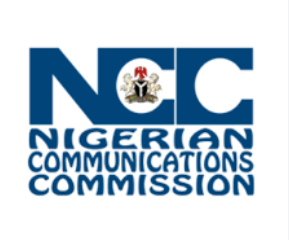

NCC launches 2025 corporate governance guidelines for telecom industry
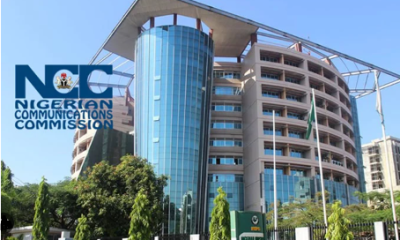

NCC: Nigerian telecom sector on recovery path, Expects significant investment surge
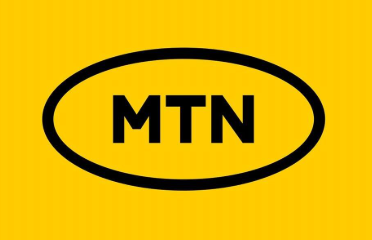

MTN-9mobile Spectrum Lease: A Necessary Lifeline for 9mobile Subscribers, Not a Threat to Competition – National Daily Analysis
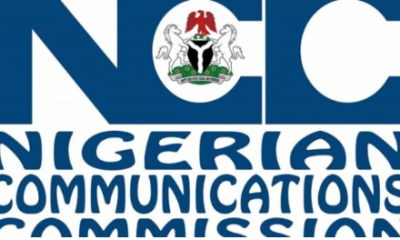

NCC mandates licensees to update contact information by January 9, 2025
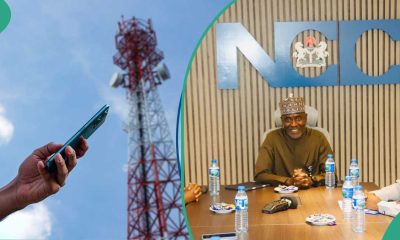

NCC to address technology’s impact on youth at 2024 NAN press week
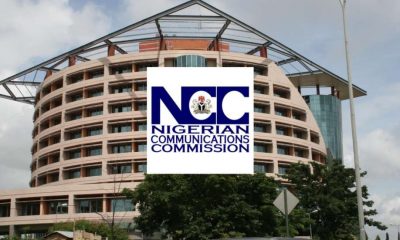

NCC warns Nigerians against buying pre-registered SIM cards
Trending

 Entertainment5 days ago
Entertainment5 days agoSimi addresses resurfaced 2012 tweets amid online backlash

 Comments and Issues1 week ago
Comments and Issues1 week agoNigeria’s Declining Oil Output and Soaring Foreign Portfolio Investment Inflow

 Comments and Issues1 week ago
Comments and Issues1 week agoEx-prince Andrew’s arrest, lessons for Nigeria

 Health7 days ago
Health7 days agoSCFN, LUTH introduce bone marrow transplants as curative treatment for sickle cell

 Comments and Issues1 week ago
Comments and Issues1 week agoThe Seyi Tinubu’s jellof rice, loaves of bread

 Health3 days ago
Health3 days agoDeclassified CIA memo explored concealing mind-control drugs in vaccines

 Football7 days ago
Football7 days agoHarry Kane nets brace as Bayern edge Frankfurt 3–2 to go nine points clear

 Football7 days ago
Football7 days agoLate Flemming header stuns Chelsea as Burnley snatch 1–1 draw at Stamford Bridge

